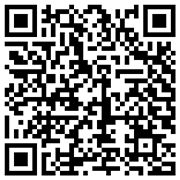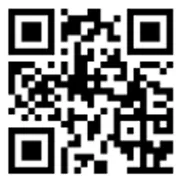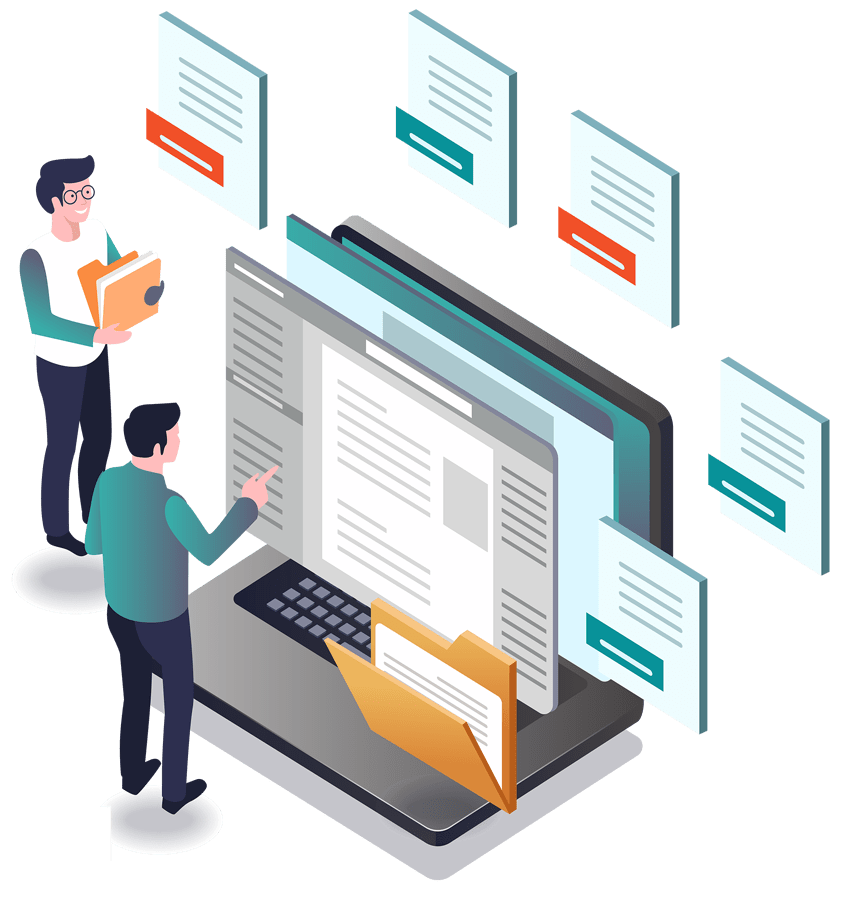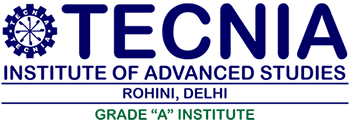14th International Conference BA (JMC)
- ABOUT TIAS
- ABOUT THE CONFERENCE
- CONFERENCE OBJECTIVE
- CONFERENCE OUTCOMES
- CONFERENCE HIGHLIGHTS
- SUB THEME
- IMPORTANT DATES
- CONFERENCE MEMBER
- ADVISORY BOARD MEMBER
- CALL FOR PAPERS
- REGISTRATION
- IMPORTANT POINTS
- CONTACT
About TIAS
Tecnia Institute of Advanced Studies (TIAS) – is one of the Premier institutes, set up under the aegis of the Health & Education Society (Regd.), – a body registered under the Society Registration Act XXI, 1860. TIAS is Grade ‘A’ Institute duly recognized by All India Council for Technical Education, Ministry of Education, Govt. of India and is affiliated to Guru Gobind Singh Indraprastha University, Delhi; Recognized under Section 2(f) of UGC Act, 1956 established in the country’s capital in the year 1998 as an educational and professional centre, with an aim to provide technical knowledge required for the career development of young generation by way of providing the quality education
CONFERENCE OVERVIEW
The Indigenous Knowledge and Development conference will provide Tan excellent international forum to examine the relationship between knowledge sharing and innovative technologies, their applications, and future challenges in various sectors. This conference will discuss the vital sources of information and practises that have aided in sustainable development, particularly in rural areas. The relevance and persistence of indigenous knowledge systems have been put to the test, nonetheless, by the rapid rate of technological advancement and globalisation.
The conference is structured around a series of sub-themes, including the use of indigenous knowledge and artificial intelligence as a medium of communication, and the changing dimensions of media and society in the Amrit Kaal period. Other sub-themes include the role of women in development during Amrit Kaal and the potential of Amrit Kaal as a source of inspiration and renewal for contemporary Indian society. During the conference, participants would engage in lively discussions, sharing their perspectives and experiences related to the integration of indigenous knowledge into development initiatives. Presentations and panel discussions will feature a diverse range of voices, including representatives from indigenous communities, academics, policy-makers, and practitioners. These key themes and recommendations will highlight the importance of a collaborative and participatory approach to the integration of indigenous knowledge into development initiatives, the need for ethical and culturally sensitive approaches to the use of technology in preserving and disseminating indigenous knowledge, and the potential of indigenous knowledge to inform and enhance sustainable development policies and programs.
The Academic International Conference on Indigenous Knowledge is a platform for researchers, scientists, scholars, students and industry professionals from around the world to present their current research and foster alliances with peers. The goal of this Conference is to bring together researchers and practitioners from academia and industry to focus on understanding Modern engineering and applied sciences concepts and establishing new collaborations in these areas. Authors are solicited to contribute to the conference by submitting articles that illustrate research results, projects, surveying works and industrial experiences that describe significant advances in the areas of Studies and Education. The Conference will also have a space for companies and institutions to present their innovations and research results.

CONFERENCE OBJECTIVE
- To offer a forum for academics, professionals, and indigenous people to share and exchange information about incorporating indigenous knowledge into development projects in light of recent technological advancements and significant changes.
- To critically assess the obstacles, dangers, and opportunities related to the use of digital technologies for the preservation, sharing, and revival of indigenous knowledge systems, and to investigate creative solutions to these obstacles.
- To create a set of practical suggestions and rules for the moral and responsible incorporation of indigenous knowledge into development projects, taking into account the viewpoints and requirements of indigenous communities and emphasising the significance of cooperative and participatory approaches to sustainable development.
CONFERENCE OUTCOMES
- Recommendations for the development of AI tools tailoring the needs and priorities of indigenous communities, promoting participatory and collaborative approaches to the design and implementation of AI-based interventions.
- Participants will explore the role of Indian knowledge systems in addressing contemporary challenges, such as climate change, healthcare, and sustainable development, and highlight the importance of preserving and revitalizing traditional knowledge in these contexts.
- Participants will also discuss the impact of technological change on media and society in the Amrit Kaal period, highlighting the potential of new media technologies to facilitate communication, social mobilization, and cultural expression.
- To develop a set of recommendations for the promotion of Amrit Kaal as a source of cultural and intellectual renewal, as well as the establishment of partnerships between scholars, practitioners, and indigenous communities to promote the integration of Amrit Kaal into development initiatives.
- To develop a set of recommendations for the promotion of Amrit Kaal as a source of cultural and intellectual renewal, as well as the establishment of partnerships between scholars, practitioners, and indigenous communities to promote the integration of Amrit Kaal into development initiatives.
CONFERENCE hIGHLIGHTS
- All the accepted papers will be published in the UGC Care/Scopus-indexed international journals. Scopus has ISSN & Impact factor.
- Each author will receive two certificates: one for having their work published in a journal and another for having their work presented at a conference.
- Each conference paper will be published in the conference proceedings with an ISBN.
- The ISBN books would be released through International Publishing Houses
- All accepted papers will be included in Researchgate and Google Scholar indexes.
- The conference will operate in hybrid mode, with paper presentations occurring both online and offline.
Sub Themes
The following indicative topics, but not limited to, are welcome to be submitted for the conference:
- Indigenous Knowledge & e-Education
- Indigenous Knowledge & Artificial Intelligence: Medium of Communication
- Indigenous Knowledge & Role of Social Media Education
- Reviving Traditional Knowledge Systems for Sustainable Development & Social Innovation
- Innovation for Development through ICT
- Innovation for Development & Converting Knowledge to Value
- Use of Indian Knowledge in Developing Interventions and Innovations for Contemporary World
- Exploring the Glorious Past, Promising Present & the Future Roadmap
- Changing Dimensions of Media and Society in Amrit Kaal
- Nari Shakti for India’s development during Amrit Kaal
- Amrit Kaal for Indians, by Indians and to the World
- Positioning India for the Future Amrit Kaal
- Public Policy Development for Amrit Kaal
- Pedagogy of Media Education and Digital Literacy
- Media and Communication Discourses in Digital Era
- Indigenous Knowledge, ICT & Media Education
Important Dates
- Submission for Abstract10th July 2023
- Acceptance Notification15th July 2023
- Submission for Full Paper24th July 2023
- Conference Date28th July 2023
CONFERENCE MEMBER
- Chief PatronDr. R.K. Gupta, Chairman, Tecnia Group of Institutions, Delhi
- PatronDr. Sandhya Bindal, Vice- Chairman, TIAS
- Director ConferenceDr. Ajay Kumar, Director
- Conference ChairDr. M.N. Jha, Dean
- Conference ConvenerDr. Gopal Thakur HoD BA(JMC), TIAS
- Conference Co-convenerDr. Vipul Partap, Dr. Rajnesh Kumar Pandey, Dr. Rajni Yadav
ORGANIZING COMMITTEE
- Dr. Shivendu Kumar Rai, HOD BA(JMC), TIAS
- Dr. Shaheen Bano
- Mr. Nitin Yadav
- Ms. Priyanka Singh
- Mr. B K Mishra
- Dr. Jagriti Baser
- Mr. Amit Sharma
- Ms. Sonia Batra
- Mr. Ketan Kumar Kataria
- Ms. Jyoti Gupta
- Mr. Mayank Arora
- Ms. Navya Singh
- Mr. Vinod Kumar
- Mr. Deepak Prasad
- Ms. Shruti Sharma
- Ms. Isha Rana
- Dr. Bharat Kumar
Student Co-ordinators
- Riya Sharma
- Vaishnavi
- Deepanshu Sharma
- Ananya Jain
ADVISORY BOARD
- Prof K G Suresh VC MCNUJC, Bhopal
- Prof Sanjay Dwivedi DG, IIMC, New Delhi
- Prof Shrikant Singh Rtrd Prof MCNUJC, Bhopal
- Prof Rehman Musawir Jamia Milia Islamia University, New Delhi
- Dr Vikash Singh Director, Uttaranchal University, Uttarakhand
- Prof Nirmala Mani Adhikary HOD BJMC, Kathmandu University, Nepal
- Prof Waqas Mahmood IAMCR
Call for Papers
epartment of Journalism and Mass Communication, Tecnia Institute of DAdvanced Studies (TIAS), New Delhi, invites all the faculty members, research scholars/students, practitioners, and academicians to submit and present their research papers at International Conference on “Revisiting Indigenous Knowledge and Development under New Technological Innovations and Notable Changes” scheduled on July 28, 2023. Authors are requested to submit a soft copy of the complete research paper at
REGISTRATION DETAILS
|
Payment Mode
Demand Draft in favor of Tecnia Institute of Advanced Studies payable at New Delhi. Online payment /NEFT/ UPI for TIAS, New Delhi
|

IMPORTANT POINTS
- Please fill the form neatly in capital letters
- Last date for registration form submission: 10th July 2023.
- The fee includes conference material and refreshments. A certificate would be issued to the participants.
- Fee does not include accommodation or local/outstation travel. No refund will be allowed for cancellations made. Outstation candidates needing assistance in accommodation (on payment) may contact the Conference Convener at the address given below.
Scan for Register

Scan for Location


TECNIA INSTITUTE OF ADVANCED STUDIES
3PSP, Institutional Area, Madhuban Chowk, Rohini, Delhi-85, IndiaPhone: 011-27555121-2223-24 • Mobile: 9250408921 9818083607 • Fax: 27555120







